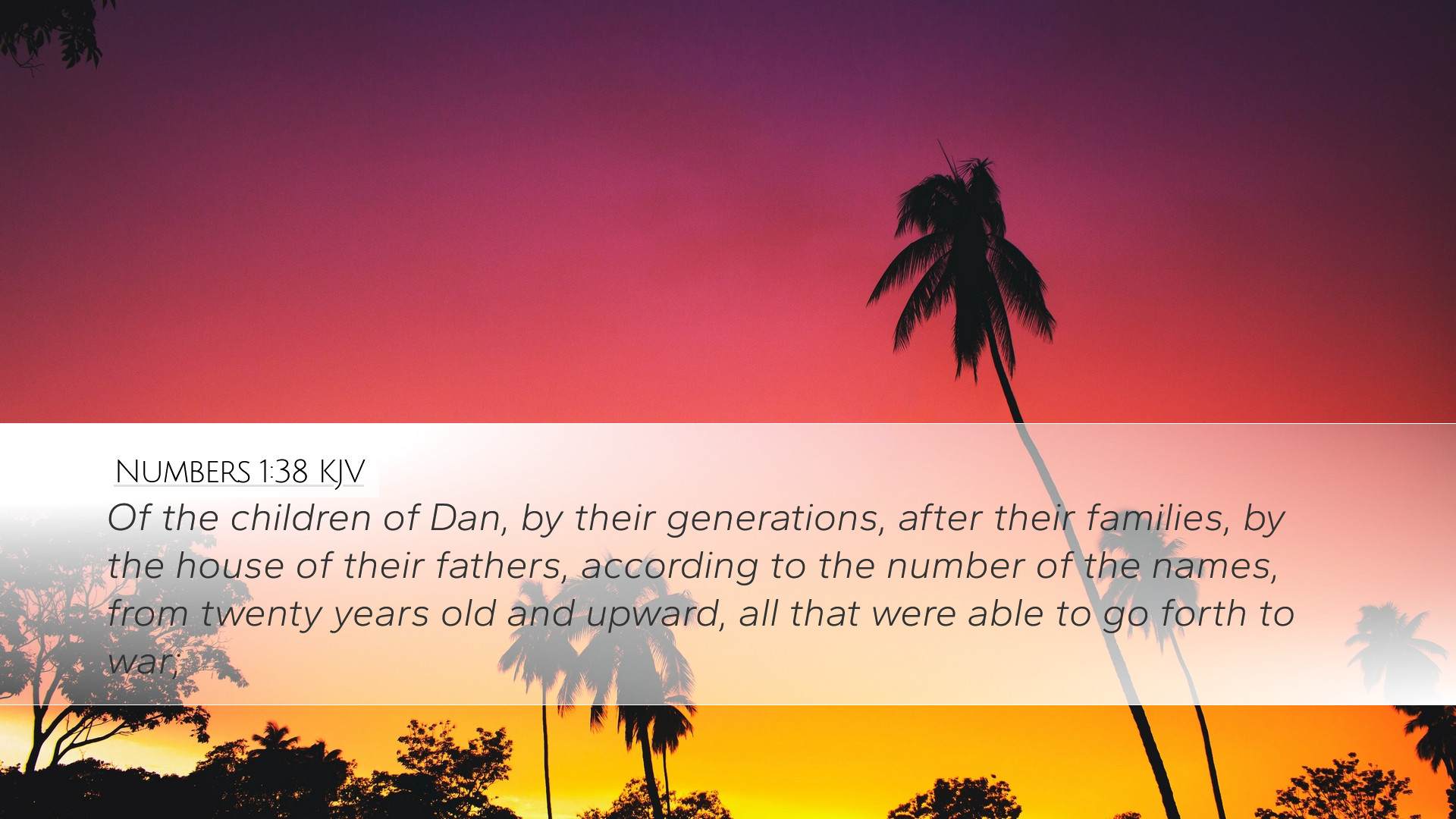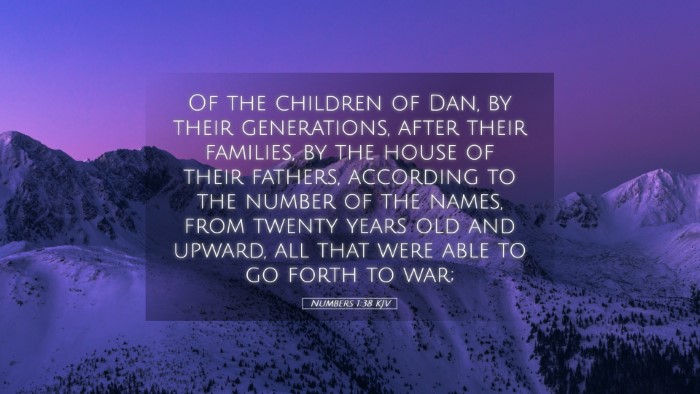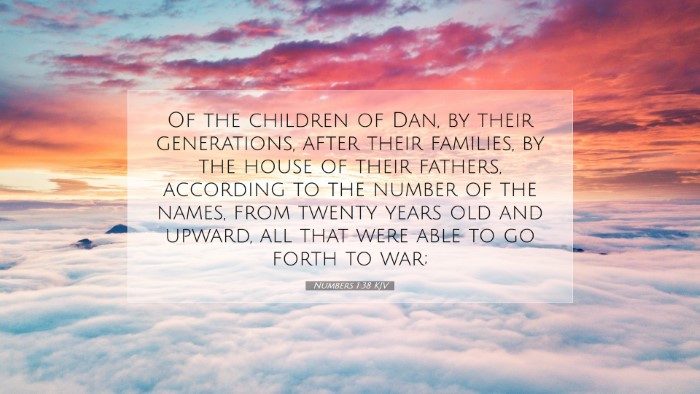Commentary on Numbers 1:38
Introduction
The Book of Numbers is a significant portion of the Pentateuch, detailing the Israelites’ journey through the wilderness. In this particular verse, Numbers 1:38, we find a measurement and enumeration of the tribe of Zebulun, which serves not only as a historical account but also exposes deeper truths about God’s people and His divine order. This commentary amalgamates insights from various public domain sources to provide a comprehensive understanding.
Text of the Verse
“Of the children of Zebulun, by their generations, after their families, by the house of their fathers, according to the number of the names, from twenty years old and upward, all that were able to go forth to war;” (Numbers 1:38, KJV)
Historical Context
This verse is set during the second year after the exodus from Egypt when God commanded Moses to take a census of the Israelite males capable of warfare. The tribe of Zebulun is mentioned here, representing one of the twelve tribes of Israel, descended from Jacob's son Zebulun. The counts made hold not only military significance but also emphasize the organizational structure that God desired for His people.
Exegesis and Commentary
Tribal Identity and Inheritance
Matthew Henry emphasizes the importance of tribal identity and the unique inheritance allotted to each tribe, including Zebulun. Each tribe had distinct roles, responsibilities, and blessings. The mention of Zebulun invokes a reflection on its prophetic blessings in Genesis 49:13, where Jacob blessed Zebulun to dwell by the sea and serve as a haven for ships.
Organization and Census
Adam Clarke elucidates that the census was not merely a matter of numbers; it was a divine strategy for organizing the nation of Israel. The structure provided by the census allowed for an effective approach to warfare, communal living, and establishing a sense of identity among the tribes. Each household and family was crucial in this organization, paving the way for unity amidst diversity.
Age and Ability
Barnes notes the specific mention of men twenty years and older, which implies the requirements for military service, signaling a threshold of maturity and responsibility. This detail indicates God’s interest in an equipped and mature army, illustrating that spiritual warfare also requires readiness and preparedness among God’s people.
Spiritual Symbolism
Henry expands on the idea that the census symbolizes God’s watchful eye over His people. Just as the names were recorded, so too are the names of God’s people inscribed in the Book of Life (Revelation 20:15). This assurance instills a sense of belonging and purpose among the Israelites, serving as a precursor to their duty in fulfilling God's promises.
Theological Themes
Divine Order and Structure
- God’s Authority: The census reflects God's authority over Israel as He dictates the structure and roles of society.
- Preparedness: The military preparation echoes the call for readiness in spiritual warfare, urging believers to don the full armor of God (Ephesians 6:11).
- Collective Identity: The listing of names fosters a sense of community, illustrating that every member has a vital role in the greater body of believers.
Faithfulness in Service
Throughout biblical history, God values faithfulness. The mention of Zebulun serves as an invitation for current believers to reflect on their giftings and roles within their communities. Each tribe's unique contribution glorifies God and advances His Kingdom. Thus, today's applications center on recognizing the significance of each individual’s service to Christ.
Application for Pastors and Theologians
This verse presents several applications for pastors and Bible scholars. It encourages leaders to:
- Recognize the need for organizational structures within the church that reflect biblical principles.
- Teach about the importance of maturity in faith and preparation for spiritual leadership and service.
- Encourage congregants to discover and embrace their unique callings in the body of Christ.
Conclusion
Numbers 1:38, while initially appearing as a simple list, is rich with theological depth and practical insight. By examining the structure of the Israelites as commanded by God, we glean truths about order, identity, and preparation. As with the tribe of Zebulun, we are called to fulfill our roles within God’s family, ensuring that we are ready and equipped for the tasks He has laid out before us.


